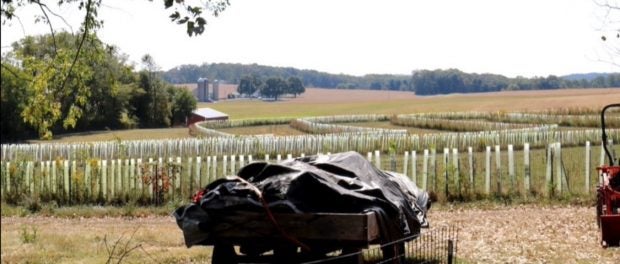Silvopasture and Farmer-to-Farmer Mentoring Webinars

Future Harvest CASA Presents Webinars on Keyline Planning and Silvopasture and Farmer-to-Farmer Mentoring in August.
Keyline Planning and Silvopasture Webinar with Porch View Farm
Thursday 8/6/20 12:00 – 2:00 pm Join Keith Ohlinger of Porch View Farm and Michael Heller of the Chesapeake Bay Foundation and Clagett Farm for a webinar on keyline design, silvopasture, and grazing.
Keyline design is a landscaping technique that maximizes the beneficial use of the water resources of a tract of land. The “keyline” denominates a specific topographic feature related to the natural flow of water on the tract. Keyline planning uses a system of principles and techniques for developing rural and urban landscapes to optimize use of their water resources.
This event will include a discussion of how Keith uses Keyline Planning to enhance the farm’s silvopasture system and rotational grazing practices. Porch View Farm takes a holistic approach to production: trees, animals, and forages are integrated as a whole system, rather than separate pieces. This event is free, but we ask you consider making a $10 donation to cover associated organizing costs. Register here.
Expanding Soil Health Through Farmer-to-Farmer Mentoring
Thursday 7/30/20 3:00 pm Join the National Fish and Wildlife Foundation and the Chesapeake Bay Funders Network for virtual learning to advance soil health and regenerative agriculture in the context of the region’s water quality, resilience, and sustainable agriculture goals. This webinar, tailored for ag service providers, will explore best practices and opportunities to enhance and expand farmer-to-farmer education and mentoring. Register here.
Future Harvest’s mission is to advance agriculture that sustains farmers, communities, and the environment. We provide education, networking, advocacy, and research to help build a sustainable Chesapeake foodshed, where food flows from farm and fishery to table in ways that strengthen farming and the regional food economy; protect our land, water, and air; and provide healthy, nutritious food that sustains the region’s communities.








 Your Privacy Choices
Your Privacy Choices
Leave a comment